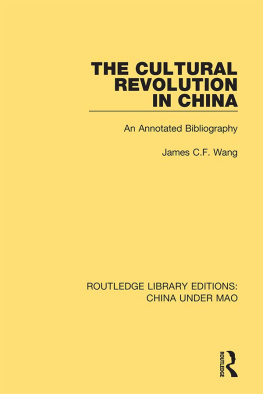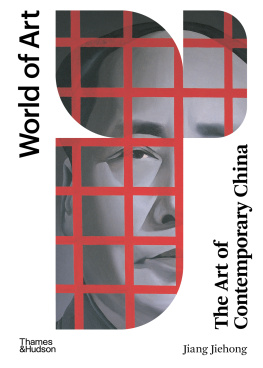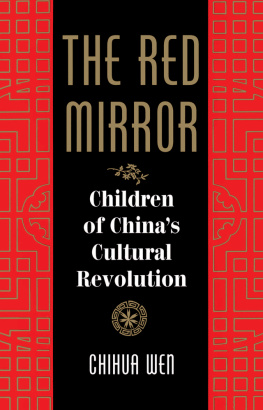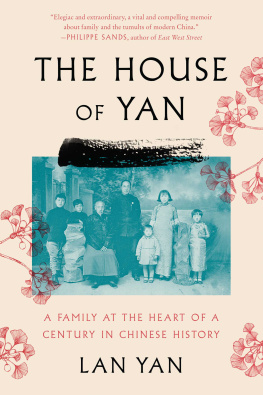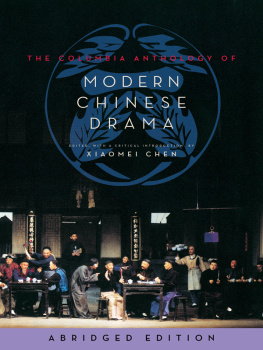Some names have been changed to protect the privacy of individuals.

G randpa had been a wealthy landowner in the small seaside village of Yellow Stone. His own father, my great-grandpa, had been one of the rare scholars to shine in the civil servant examination during the Ching Dynasty, winning the title of Ju Ren , the equivalent rank to an earl. He was awarded the governorship of Putian County, a slice of paradise in the southeastern corner of China between the rugged Wuyi Mountains to the west and the Pacific Ocean to the east. Beneath it lay my tiny village, Yellow Stone.
The emperor also bestowed upon my great-grandpa a lot of land that stretched as far as the eye could see. After Great-grandpas assassination by a revolutionary rebel, Grandpa became a county sheriff and a civilian judge, adjudicating all villagers land disputes, grand or petty, along the coast. Our family, the House of Chen, lived in Yellow Stone on the land granted to us by the emperor. We owned a chain of lucrative storefronts that were rented to merchants for a third of their profits, and our lands were leased to farmers for a third of their harvest.
Life was good until 1949, thirteen years before my birth, when Communism bled from Russia to China. Communism, especially in the form associated with Karl Marx, is the belief that private property is bad and making a profit is evil. Everything under the sun should be owned, instead, by the people. In China that turned out to be the top man, Chairman Mao, after he overthrew the ruling Nationalist government with his Red Army and introduced this radical, foreign idea to the masses.
Chairman Mao claimed he had liberated the great nation of China from a corrupt capitalist government, but the truth was less liberating and a lot more bloodthirsty.
The new Communist government confiscated farming land, factories, and stores from their original owners under the guise of land reform. They killed most of the landlords, including my grand-uncles, who were shot in the head, their gooey brains splashed all over the walls of their ancestral home.
Grandpa was one of the few lucky landlords to survive. They didnt kill him because he readily handed over all his deeds while on his knees, begging the Communist Red Army for his life. Though he was spared, what was left of his life was pathetic. They condemned him, sentencing him annually to labor reform. He spent over a decade digging hard soil in a mountainous region, building irrigation tunnels and making a reservoir.
When he became too old and feeble to work, the commune party chief made his son, my baba, take over his labor reform duties. They believed the sins of a family were passed down in the blood and had to be cleansed for at least nine generations.
With the new Communist government, everything was turned upside down. Good was bad, and bad was glorious. For thousands of years, landlords had been kings, but now anyone owning even a tiny plot was condemned and sentenced to labor reform camp. Education had been as high and lofty as heaven, from which gold ingots sprouted. Now universities were thrown into chaos as education was condemned: It was a capitalistic enterprise, and teachers were the enabling bourgeoisie. Revered professors were locked up in jails; other teachers were sent to the remote countryside to be reeducated by poor farmers.
Everything was wrong. Nothing was right anymore, and wouldnt be until 1976 when the Cultural Revolution ended.
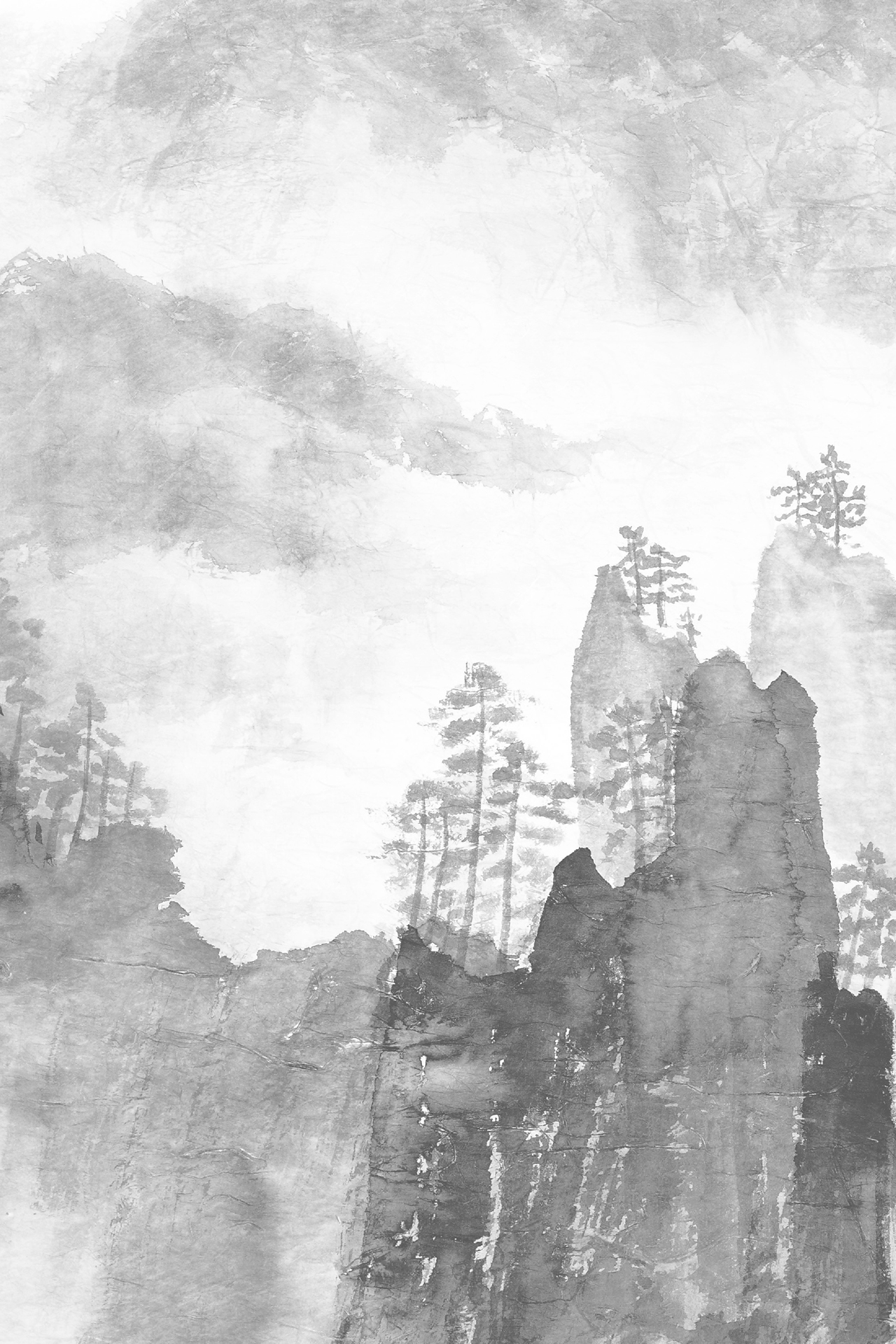

S isi awoke to Grandpas hacking coughs from his bedchamber across the courtyard. It was still dark. The cold spring morning must have chilled Grandpas lungs. He would want his hot tea soon.
She rolled out of her bed and lit a kerosene lantern. Hurriedly, she put on the set of matching blue jacket and trousers that Mama had stitched for her during last Spring Festival; they were her newest clothes. It was the Red Guards Dedication Day at her middle school, and she had to wear her best clothing.
She gazed at herself in a narrow mirror and saw that her trousers had shrunk so that the bottoms barely reached her ankles. She tugged the waistband down a little and pulled the tops of her socks up, then scrutinized herself again. It would have to do, she decided, as Grandpa coughed violently. The sound of thick phlegm hitting the spittoon followed.
Lantern in hand, Sisi quickly entered the courtyard, where a pale moon gleamed behind the gentle arc of the roof and illuminated the paving stones, dewy from the sea breeze, and the courtyard well, sunken years ago by Grandpa.
She hung the lantern on an iron hook and tossed the tin can, tied to a rope, down the narrow mouth of the well and listened to it clink its way down to the bottom. She pulled on the rope and noted that the night tide had raised the water. The first draw of the day would be full and sweet, ideal for brewing Grandpas tea.
Baba used to get up early to warm Grandpas tea, but he had been sent away for another year of hard digging at Yellow Stone Labor Camp. With each political movement, which came now in surges, the commune cadres would arrest old regulars like Baba and send them away to dig irrigation ditches up in the mountains. Sisi had taken on the duty of rising early so Mama could stay in bed a bit longer. Mama toiled late into the night on her sewing machine, making clothes for her customers.
At thirteen, Sisi was the eldest. My brother, Jin, twelve, was next. Then came my sisters, Keke, eleven, and Huang Huang, ten. I, Da, was the youngest at eight. Due to the wide age gap, Sisi was thrust into a motherly role and often treated me like a young son instead of a little brother.
I shared a bedroom with Sisi, and the usual morning noises could be easily heard through the thin door she left ajar.
Sisi poured the cold water into a kettle and lit a bundle of rice straw, making a fire in the earthen stove. Grandpas wooden door squeaked open, and in the dim light, his thin, shadowy figure shuffled toward her. His wooden sandals dragged along the cold stone, and his breath labored audibly. Ever since he had contracted a lung ailment, hed been breathing like an old rusty saw. Frequent coughing spasms would leave him shaking like a windblown tree.
He mumbled his thanks as Sisi pulled out a bamboo stool for him. He sat, looking like an old sage, the light from the fire sparking a glint in his deep-set eyes and highlighting his sharp cheekbones and prominent nose ridge. He looked like a hungry caveman seeing days first light.
Sisi lit his water pipe, and he puckered his lips and sucked hard and deep on his pipe, making the tobacco burn furiously with dancing little fizzles that brightened the semidarkness. He held the smoke inside his chest, letting it infiltrate and satiate every particle of his inner tissues before releasing it all out again like two tusks from his flaring nostrils with a glazed look of satisfaction, ready now for the chilly day.




